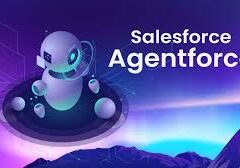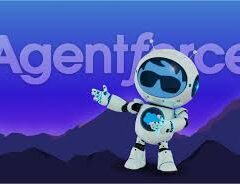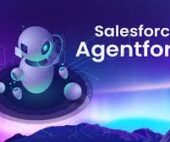The “second wave” of AI agents refers to the evolution of AI beyond simple chatbots and into more sophisticated, autonomous systems that can plan, execute, and deliver results independently, often leveraging large language models (LLMs). These agents are characterized by their ability to interact with other applications, interpret the screen, fill out forms, and coordinate with other AI systems to achieve a desired outcome. They are also seen as a significant step beyond the first wave of AI, which primarily focused on predictive models and statistical learning.
Key Characteristics of the Second Wave of AI Agents:
- Action-Capable: AI agents can perform actions beyond simple text-based interactions, such as interacting with other applications, interpreting screens, and filling out forms.
- Situational Awareness: They are not limited to specific tasks but can understand and respond to the context of their environment.
- Social and Intelligent: They can interact with other AI systems to collaborate and achieve a shared goal, demonstrating “social” and “intelligent” characteristics.
- Leveraging LLMs: They often build upon the foundation of LLMs, expanding their capabilities and allowing for more complex and nuanced interactions.
- Collaboration: They are increasingly designed to work collaboratively with human users, augmenting their capabilities and productivity.
- Autonomous and Agentic: They are becoming more autonomous, able to plan and execute tasks independently, leading to the term “agentic AI“.
- At Work in our Personal and Professional Lives: Agentic agents are popping up everywhere.
Examples and Applications:
- Business Applications: AI agents are being used in various business settings, including customer service, sales, marketing, and process automation, according to an article on Medium.
- Education: AI agents can personalize learning experiences, provide tutoring, and adapt to individual student needs, according to a BNY article.
- Healthcare: AI agents can assist with scheduling, patient follow-ups, and medication management, according to an article on CX Today.
- Coding: AI agents can assist with coding tasks, generate code snippets, and even debug code, according to an article on MIT Technology Review.
In 2023 Bill Gates prophesized AI Agents would be here in 5 years. His timing was off. But not his prediction.
The Future of Computing: Your AI Agent, Your Digital Sidekick
Imagine this: No more juggling apps. No more digging through menus. No more searching for a document or a spreadsheet. Just tell your device—in plain English—what you need, and it handles the rest. Whether it’s planning a tour, managing your schedule, or helping with work, your AI assistant will understand you personally, adapting to your life based on what you choose to share.
This isn’t science fiction. Today, everyone online has access to an AI-powered personal assistant far more advanced than anything available in 2023.
Meet the Agent: The Next Era of Computing
This next-generation software—called an agent—responds to natural language and accomplishes tasks using deep knowledge of you and your needs. Bill Gates first wrote about agents in his 1995 book The Road Ahead, but only now, with recent AI breakthroughs, have they become truly possible.
Agents won’t just change how we interact with technology. They’ll reshape the entire software industry, marking the biggest shift in computing since we moved from command lines to touchscreens.
Consider Salesforce’s AgentForce. A platform driven by automated AI agents that can be trained to do virtually anything. Freeing staff up from mundane data entry and administrative work to really set them loose. Marketers can once again create content, but with the insights provided by AI. Sales teams can close deals, but with the lead rating details provided by AI. Developers can devote more time to writing code but letting AI do the repetitive pieces that take time away from awe inspiring development.
Why This Changes Everything
- No more app overload – Just speak or type what you need, and your agent handles the rest.
- Personalized, not generic – It learns your preferences, habits, and priorities to serve you better.
- The end of manual digital work – From scheduling to research, your AI assistant does the heavy lifting.
- The designing of agents that do things — from insights to actions, from emails to reports, they keep the workflows moving.
We’re on the brink of a revolution—one where technology doesn’t just respond to commands but anticipates your needs and acts on your behalf. The age of the AI agent is here, and it’s going to redefine how we live and work.
By Tectonic’s Marketing Operations Manager, Shannan Hearne














